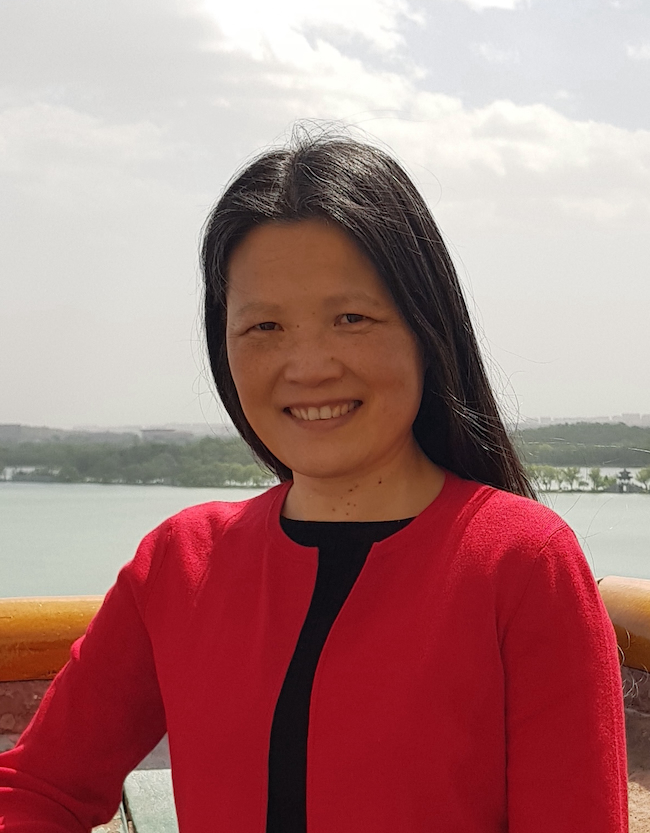£1.1m award for pioneering ovarian cancer research project
Published: 2 September 2024
UofG researchers have received £1.1m to support the development of new technologies which could improve the diagnosis and treatment of ovarian cancer.
Researchers from the University of Glasgow have received £1.1m to support the development of new technologies which could improve the diagnosis and treatment of ovarian cancer.
The two-year project, called ‘High resolution molecular profiling platform to investigate the role of tumour microbiota in anti-tumour immunity’, will be led by Professor Huabing Yin of the James Watt School of Engineering.
The project is one of 36 which will share in £32.4m of new funding from the first round of UKRI’s new cross research council responsive mode pilot (CRCRM) scheme, designed to stimulate exciting new interdisciplinary research.
Together with colleagues from the Beatson Institute for Cancer Research, the National Physical Laboratory and the University of Oxford, Professor Yin will work to source new insights into the microbiota of ovarian cancer – the most lethal and difficult-to-treat form of gynaecological disease in the developed world.
A growing body of research suggests that how cancers develop and respond to treatments like immunotherapy is linked to each patient’s unique tumour microenvironment – the complex array of human biological processes which surround the tumour and affect its behaviour.
An improved understanding of the roles that the tumour microenvironment plays in cancer pathology and response to therapies could help provide improved early diagnosis of ovarian cancer, and support the development of more precisely-targeted and effective immunotherapies to treat the disease.
The project will harness the capabilities of cutting-edge Raman spectroscopy and mass spectrometry techniques, combined with AI-driven image analysis and bioinformatics tools, to map the complex biological processes in clinical tissue samples which drive the development of cancer. The researchers will also develop new microfluidic methods to enable in-depth scrutiny of cancer genetics.
The research will provide the team with an unprecedentedly-detailed overview of the cancer cell’s biology, supported by detailed molecular information.

Professor Yin said: “I’m grateful to UKRI for their support for this interdisciplinary project, which has the potential to help provide improved outcomes for patients by deepening our understanding of the complex microbiota of tumours.
“Although we’re focusing specifically on ovarian cancer in this study, the results could be adapted to help support understanding of the microbiota of other types of cancer, or even other biological studies of other unrelated tissues."
The UKRI CRCRM pilot scheme is supporting new and creative interdisciplinary ideas emerging from the research community. It aims to:
- unlock new research, new approaches or new methods that would not emerge from established disciplinary thinking
- demonstrate reciprocal research benefits through the integration of distinct disciplinary perspectives and spheres of knowledge
- support breakthrough or disruptive ideas and collaborations
- incentivise new and unexpected types of interdisciplinary research not routinely funded through existing UKRI responsive mode schemes
- encourage speculative, early stage and high potential interdisciplinary research proposals, embracing new concepts, techniques, or technologies
Professor Alison Park, Deputy Executive Chair of the Economic and Social Research Council (ESRC) and UKRI Cross Research Council Responsive Mode Senior Responsible Officer said: “The perspectives of different disciplines, working together in collaboration, are vital to solving some of the most pressing problems we face as a society. The UKRI cross research council responsive mode scheme is designed to break down silos and champion research that transcends, combines and significantly spans traditional discipline boundaries.
“The projects announced today will drive progress across diverse fields by creating fresh approaches to research questions, methodologies and ways of working.
“We were all excited to see the innovative and bold approaches being adopted to tackle major issues ranging from climate change to global healthcare and look forward to following their progress.”
UKRI also announced that a second round of funding is launching today with a further £32.5 million available.
First published: 2 September 2024

